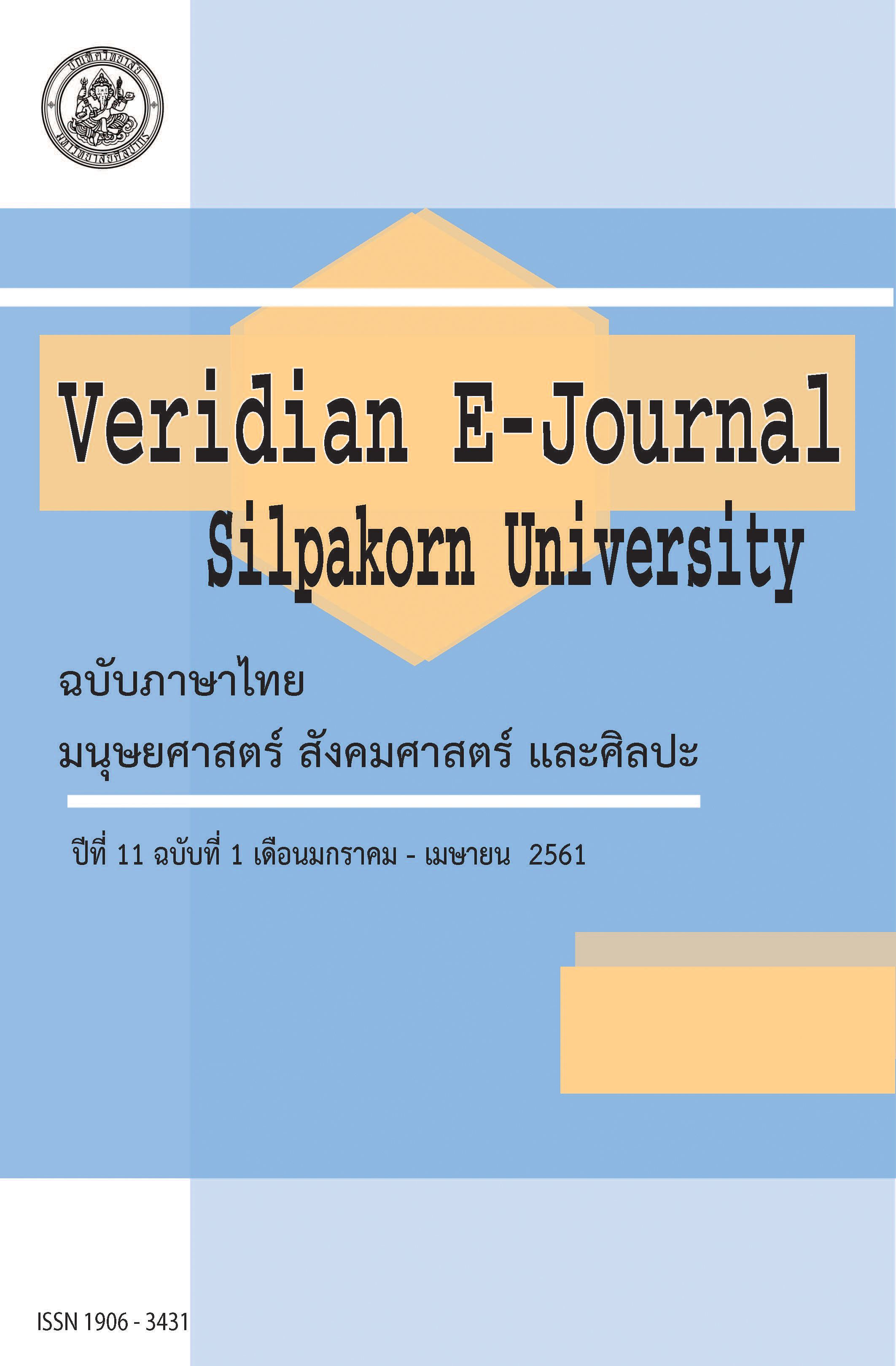ผลการใช้รูปแบบการจัดการเรียนรู้วิทยาศาสตร์โดยใช้ปัญหาเป็นฐานแบบเรียนรู้ร่วมกัน ต่อทักษะการแก้ปัญหา สำหรับนักเรียนชั้นมัธยมศึกษาปีที่ 2 (The Effects of Science Learning Model Using CollaborativeProblem–based Learning (CPBL) regarding Problem-solving Skill The Effects of Science Learning Model Using CollaborativeProblem–based Learning (CPBL) regarding Problem-solving Skills for Eighth Grade Students
Main Article Content
Abstract
การวิจัยครั้งนี้มีวัตถุประสงค์เพื่อศึกษาผลการใช้รูปแบบการจัดการเรียนรู้วิทยาศาสตร์โดยใช้ปัญหาเป็นฐานแบบเรียนรู้ร่วมกันต่อทักษะการแก้ปัญหา สำหรับนักเรียนชั้นมัธยมศึกษาปีที่ 2 กลุ่มตัวอย่างที่ใช้ในงานวิจัยคือ นักเรียนชั้นมัธยมศึกษาปีที่ 2 จำนวน 2 ห้องเรียน จำนวน 60 คน ของโรงเรียนแห่งหนึ่งในจังหวัดอุทัยธานี ที่ศึกษาในภาคเรียนที่ 1 ปีการศึกษา 2560 โดยวิธีการเลือกแบบเจาะจง แบบแผนการวิจัย เป็นการวิจัยเชิงทดลองแบบทดลองก่อนเรียนและหลังเรียนแบบมีกลุ่มควบคุมเวลาที่ใช้ในการทดลอง 22 ชั่วโมง เครื่องมือที่ใช้ในการวิจัยครั้งนี้ ประกอบด้วย 1) แผนการจัดการเรียนรู้ตามรูปแบบการจัดการเรียนรู้วิทยาศาสตร์โดยใช้ปัญหาเป็นฐานแบบเรียนรู้ร่วมกัน จำนวน 6 แผน 2) แบบวัดทักษะการแก้ปัญหา จำนวน 2 ชุดวิเคราะห์ข้อมูลโดยใช้สถิติเชิงบรรยาย การเปรียบเทียบค่าเฉลี่ยของคะแนนก่อนเรียนและหลังเรียนของกลุ่มทดลองด้วยสถิติทดสอบค่าทีที่กลุ่มตัวอย่างไม่เป็นอิสระจากกัน การเปรียบเทียบค่าเฉลี่ยของคะแนนหลังเรียนของกลุ่มทดลองและกลุ่มควบคุมด้วยสถิติทดสอบค่าทีที่กลุ่มตัวอย่างเป็นอิสระจากกัน และการวิเคราะห์ข้อมูลเชิงคุณภาพโดยใช้การวิเคราะห์เนื้อหา
ผลการวิจัยพบว่า 1) ทักษะการแก้ปัญหาของกลุ่มทดลองหลังเรียนสูงกว่าก่อนเรียน และสูงกว่ากลุ่มควบคุมอย่างมีนัยสำคัญทางสถิติที่ระดับ .05 2) นักเรียนมีพัฒนาการของทักษะการแก้ปัญหาทั้ง 3 ด้าน ได้แก่ ด้านการเข้าใจปัญหา ด้านการลงมือแก้ปัญหา และด้านการตรวจสอบและสรุปผลการแก้ปัญหาที่ดีขึ้น
The purpose of this research was to study the effectiveness of the learning model regarding problem-solving skills. The samples used in this study were sixty students in two classrooms who were studying in the first semester of the 2017 academic year using purposive sampling. The research design used in this study was a pretest-posttest control group design using twenty-two periods for implementation. The research instruments consisted of : 1) the six lesson plans according to science learning model using collaborative problem–based learning , and 2) the two problem-solving skills tests. The collected data were analyzed by descriptive statistics, comparing pretest and posttest mean scores using t-test for dependent samples, and comparing experimental and control groups posttest mean scores using t-test for independent samples. Moreover, the qualitative data was analyzed using content analysis.
The results found that ; 1) the posttest scores of problem-solving skills of the students were higher than the pretest scores and higher than the control group at a .05 level of significance. 2) students tended to have a better development of the problem-solving skills in all 3 aspects which were understanding the problem, solving the problem, and checking and summarizing the result.

